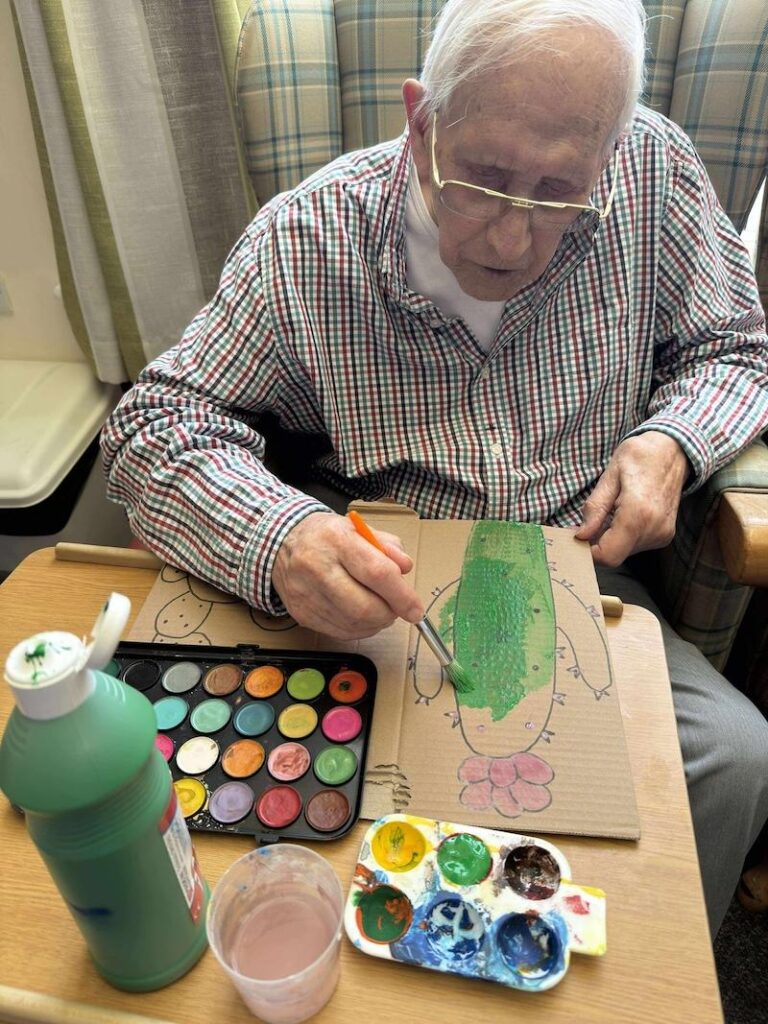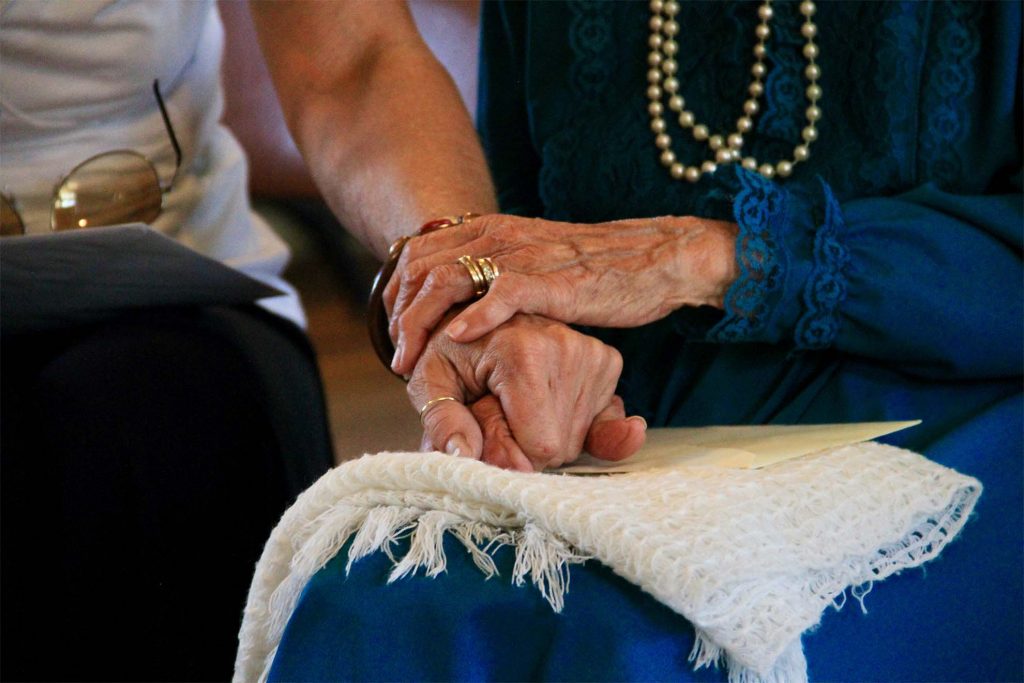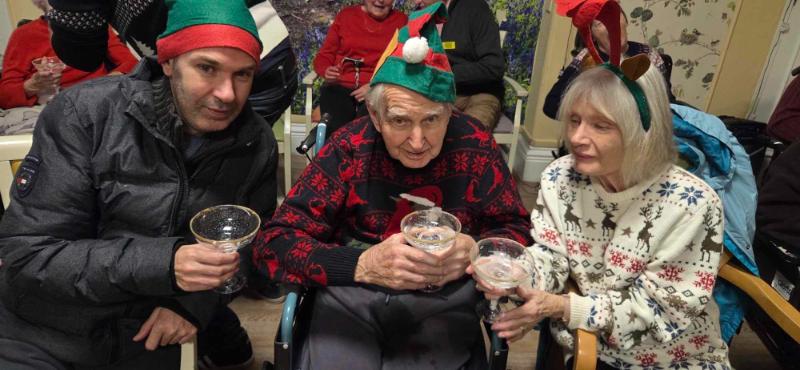The Importance of Care Plans in Care Homes

A care plan is a personalised document that outlines the health, emotional and daily support needs of someone living in a care home. It sits at the heart of high-quality care, guiding staff, supporting families and helping residents live with dignity, comfort and independence. In this blog, we explore what a care plan is, how it is developed, and why it matters so much for residents and care providers.
What Is a Care Plan?
A care plan is a detailed, person-centred plan created to reflect an individual’s needs, preferences, routines and goals. It covers everything from physical health conditions and medication to emotional well-being, hobbies, cultural preferences and daily habits. By gathering this information, care teams can deliver support that is consistent, respectful and shaped around the person’s life rather than a standard template.
How are Care Plans Made?
The process begins with a thorough assessment carried out by healthcare or nursing professionals. They review medical history, current health conditions, mobility, mental health, past treatments and any risks that may need managing. Equally important are conversations about the person’s preferences, routines and values. Families play an essential role at this stage, helping the care team understand the person’s background, personality and what matters most to them.
After gathering this information, the care team writes the care plan. It includes details such as medication schedules, mobility support, communication needs, emotional triggers, preferred routines and the resident’s specific goals. For people living with dementia, it may also highlight non-verbal cues, behaviours or reassurance techniques that help the person feel safe and understood.



The Role of Person-Centred Care in a Care Home
Person-centred care is the foundation of every effective care plan. It means seeing the resident as an individual, not just a list of care tasks. Their identity, history and emotional well-being matter just as much as their physical needs. A care plan ensures their choices, such as waking times, meal preferences, spiritual needs, hobbies or social routines, are respected every day.
This approach supports independence, improves quality of life and helps staff build meaningful relationships with residents. These relationships are particularly important when someone experiences communication difficulties, such as those caused by dementia. Understanding body language, expressions or distress signals becomes essential in providing compassionate, appropriate support.
Goals, Outcomes and Daily Support
A care plan outlines the outcomes the resident and care team want to achieve. These might include improving mobility, managing a long-term health condition, reducing anxiety or maintaining social engagement. It also outlines the daily actions required to support the resident, such as help with personal care, eating, medication, mobility or emotional reassurance.
For residents who lack capacity to make decisions, the care plan records input from family members or legal representatives to ensure that care continues to reflect the person’s best interests.
Why do Care Plans Matter in a Care Home?
Care plans make care safer, more consistent and more effective. They ensure every member of the care team understands the resident’s needs and the correct way to meet them. They support better communication between care workers, nurses, families and external healthcare professionals, reducing the risk of mistakes and helping everyone work towards the same goals.
By tailoring care to the individual, care plans improve outcomes, whether that means preventing health complications, supporting recovery or enhancing emotional well-being. They also help care homes meet regulatory requirements and demonstrate that care is delivered safely, respectfully and in line with best practice.
A Living, Evolving Document
A care plan is never static. It must be reviewed regularly, particularly when a person’s condition changes. Reviews allow the team to update medical information, adjust routines or introduce new strategies. For residents with progressive conditions such as dementia, this adaptability is essential. It ensures the care always matches the resident’s needs, even as those needs evolve.
Family Involvement and Collaboration
Family involvement is vital throughout the care planning process. Families often understand the resident’s personality, history and emotional triggers better than anyone. Their insight helps shape a plan that feels familiar and comforting to the resident. Regular reviews also help families stay informed and involved in decision-making, offering reassurance and clarity at a time that can often feel uncertain.



The Contribution of Healthcare and Nursing Professionals
Many residents require support from a range of professionals, including nurses, doctors, physiotherapists, occupational therapists and mental health specialists. Their expertise ensures the care plan is clinically sound and safely addresses any medical conditions. Nursing care plans may be added when more complex interventions are required, such as wound care, managing long-term conditions or monitoring vital signs.
Supporting Emotional Health and Social Well-Being
A comprehensive care plan considers more than physical health. Emotional support and social stimulation are key to reducing loneliness, anxiety and confusion. Activities that encourage creativity, movement, sensory engagement or social interaction can have a significant impact on overall well-being. Care plans help staff tailor these activities to the individual, ensuring the resident feels included, valued and connected.
The Role of Care Providers and Local Authorities
Local authorities may be involved in needs assessments, funding and ensuring care providers meet legal and regulatory standards. Care homes must demonstrate that care plans are accurate, up to date and consistently followed. This ensures every resident receives high-quality, safe and person-centred care.
Why Care Plans Build Better Care
A care plan is far more than a document. It is a tool that helps care teams understand the person behind the needs. It supports communication, strengthens relationships and ensures every member of staff is working towards the same goals. Most importantly, it helps residents feel understood, respected and supported in a way that reflects their identity, history and preferences.
Care plans provide structure, clarity and reassurance for residents, families and care teams. By focusing on person-centred care and ongoing collaboration, they ensure that every individual receives support that enhances their health, comfort and quality of life.
See a Care Plan in Action at Our Care Home
At The Check House Care Home, we take pride in creating personalised care plans that support every resident’s needs, interests and well-being. Our team works closely with residents and families to ensure care is tailored, compassionate and consistent.
If you would like to see how our care plans translate into real, person-centred care, we invite you to arrange a tour of our home. Come and meet our team, explore our facilities and discover how we make every resident feel supported, safe and valued.
***This blog post was updated on Monday, 17th November 2025***






